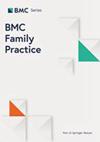在初级医疗实践和提供的广泛范围内,患者对信息共享和以患者为中心的医疗服务的体验:对澳大利亚成年人进行的一项具有全国代表性的调查
IF 3.2
3区 医学
Q1 MEDICINE, GENERAL & INTERNAL
引用次数: 0
摘要
近年来,澳大利亚政府制定了各种战略和框架,鼓励整合和协调初级保健服务,包括以患者为中心的临床和预防保健方法以及健康促进方法。本研究旨在探讨患者在各种初级医疗临床环境中对信息共享和以患者为中心的医疗服务的体验,尤其侧重于与全科医生、自然疗法师、骨科医生和针灸师的临床接触。我们分析了具有全国代表性的澳大利亚≥18岁成年人的63项横断面调查中有关医疗保健利用和体验的数据。采用卡方检验(Chi-square)和Kruskal-Wallis H检验(Kruskal-Wallis H)来探讨在全科医生咨询过程中,与没有咨询过自然疗法师、整骨疗法师或针灸师的人相比,他们在知识和信息共享方面的体验有何不同。我们使用逻辑回归法来研究参与者对全科医生咨询结果的看法与全科医生的信息共享行为或以患者为中心的感知体验之间的相关性。在 2354 名参与者中,口头解释(76.3%)和/或个性化讲义(16.8%)是全科医生咨询中最常见的信息分享类型。同时向全科医生和自然疗法师、整骨疗法师或针灸师咨询的人中,接受全科医生口头解释的比例较低,但接受包括讲义在内的其他类型信息来源的比例较高。超过四分之一到全科医生处就诊的研究参与者没有与全科医生讨论过任何健康信息。同时就诊于自然疗法师、整骨疗法师或针灸师的人分享信息的比例较低。参与者认为他们向全科医生咨询时是以患者为中心的,但在同时向研究中包括的至少一种其他初级保健从业人员咨询的参与者中,这些评分较低。公共卫生和医疗服务研究人员、政策制定者和初级医疗行业的领导者有责任和义务确保从业人员有信心和能力与患者分享健康信息,并考虑到他们的健康知识需求以及以患者为中心的医疗服务的重要性。建议开展研究,重点是更深入地了解本研究中观察到的初级保健领域的差异和关系。本文章由计算机程序翻译,如有差异,请以英文原文为准。
Patient experiences of information-sharing and patient-centred care across the broad landscape of primary care practice and provision: a nationally representative survey of Australian adults
Australian government strategies and frameworks have been developed in recent years to encourage the integration and coordination of primary care delivery; including patient-centred approaches to clinical and preventative care, and health promotion. This study aims to explore patient experiences of information-sharing and patient-centred care across various primary care clinical settings, with a particular focus on clinical encounters with GPs, naturopaths, osteopaths and acupuncturists. Data about healthcare utilisation and experiences from a 63-item cross-sectional survey obtained from a nationally representative sample of Australian adults aged ≥ 18 years were analysed. Chi-square and Kruskal-Wallis H tests were used to explore differences in the experiences of knowledge and information sharing during GP consultations among those who also consulted with a naturopath, osteopath or acupuncturist, compared those who had not. Logistic regression was used to investigate correlations between participants perceptions about GP consultation outcomes, and the GP’s information-sharing behaviour or perceived experience of patient-centredness. Across 2354 participants, verbal explanation (76.3%) and/or individualised handouts (16.8%) were the most common type of information shared in GP consultations. Individuals who consulted with a GP and a naturopath, an osteopath, or an acupuncturist reported a lower rate of receiving a verbal explanation from their GP but higher rate of receiving other types of information sources including handouts. Over one quarter of study participants who visited a GP did not discuss any of their health information with their GP. Information sharing was lower for individuals who also visited a naturopath, osteopath or acupuncturist. Participants scored their consultations with a GP as patient-centred, but these scores were lower among participants who also consulted with at least one other primary care practitioner type included in the study. Public health and health services researchers, policymakers and leaders of primary care professions have a role and responsibility to ensure practitioners are confident and competent in sharing health information with their patients that considers their health literacy needs, and the importance of patient-centred care. Research focussed on a more in-depth understanding of the differences and relationships observed across the primary care landscape in this study is recommended.
求助全文
通过发布文献求助,成功后即可免费获取论文全文。
去求助
来源期刊

BMC Family Practice
医学-医学:内科
CiteScore
3.20
自引率
0.00%
发文量
0
审稿时长
4-8 weeks
期刊介绍:
BMC Family Practice is an open access, peer-reviewed journal that considers articles on all aspects of primary health care research. The journal has a special focus on clinical decision making and management, continuing professional education, service utilization, needs and demand, and the organization and delivery of primary care and care in the community.
 求助内容:
求助内容: 应助结果提醒方式:
应助结果提醒方式:


